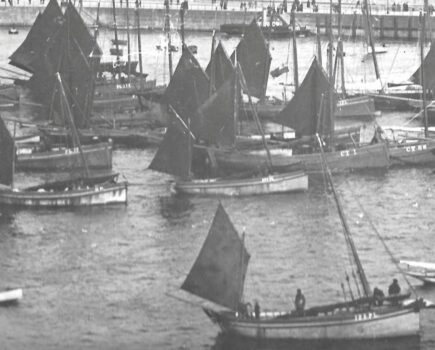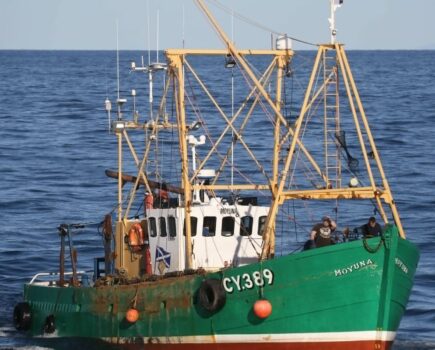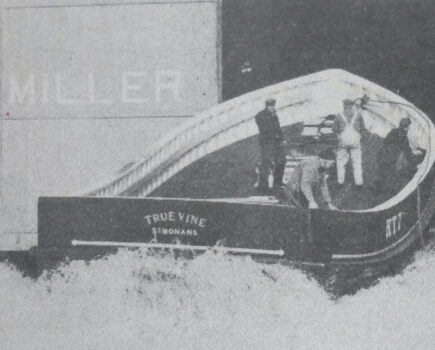Seafish fleet researcher Joe Cooper reports from the West Country
I’ve spent the past three weeks on the sunny south coast speaking to fishermen from Plymouth to Newhaven, listening to accounts of how fishing has been changing on a business-to-business basis. Even within the same harbour, the diversity of catch and daily routine seem to vary.
Although I have been hearing about the different challenges and issues faced by skippers and their crews, most fishermen have shared their appreciation of the sunny weather and the return of higher prices for their catch. This year, Dover sole has jumped back up from £8/kg to £22/kg, and the nets are coming back out.
One common scene I have come across is the time-consuming repairing of ripped gill-nets caused by the spider crab.
Anecdotally, spider crab is in abundance, tastes great and is cheaper than other crab.
However, there has not been a great demand for it in the UK. I haven’t tried the spiky crab myself, but asking who buys it at market, I was told by most fishermen that they use it for whelk bait or that they would take it home for dinner.
I was met with lots of shrugs as to why it isn’t often found on the menu. I share the confusion.
Earlier this year, the Cornish Fish Producers’ Organisation (CFPO) revealed its plans to ‘rebrand’ spider crab.
‘Underloved’ in the UK but popular in export markets, most spider crab is headed to Spain – but of course relying on exporting to the EU has been particularly challenging lately.
With spiders not traditionally thought of as very appetising, could a new name help to grow the home market for the species? Might dropping the ‘spider’ make UK diners, shoppers and perhaps even arachnophobes more likely to give it a try? Similarly, CFPO thought that megrim could be another candidate for rebranding, to remove the ‘grim’ connotations.
If alternative names could potentially do for spider crab and megrim what becoming ‘Cornish sardines’ did for pilchards, many will be delighted. Growing the markets for these species would be a welcome opportunity at a time when southern inshore vessels are seeing many different barriers to operating a viable fishing business.
I’ll be visiting Cornwall in the coming weeks, and I hope to find out more about the impact that the drive to promote these sustainable local species has had in the South West. Do stop me to chat about your fishing business if you see me on the quayside, or get in touch so that one of my fellow researchers or I can arrange to catch up with you.
Joe is a fleet researcher with Seafish, working on the 2021 fleet survey, which is taking place now. If you are happy to take part, please email: fleet. survey@seafish.co.uk with your name, email and/or phone number and port of operation.
Find out more here.
This story was taken from the latest issue of Fishing News. For more up-to-date and in-depth reports on the UK and Irish commercial fishing sector, subscribe to Fishing News here or buy the latest single issue for just £3.30 here.








